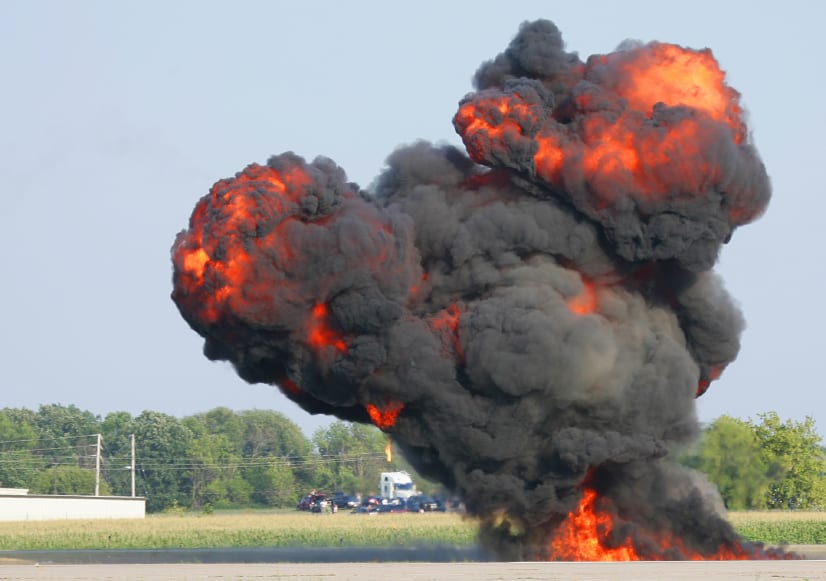The term “explosion” is commonly used but not always fully understood. Explosions are basically fires that occur at a very rapid pace, releasing a significant amount of energy. In order for these rapid fires to occur, fuel and oxygen need to be pre-mixed together. That is, the fuel needs to be in a vapor format so it can intermingle with oxygen. As a result, gaseous fuels, such as propane, are typically more susceptible to an explosion than liquid fuels, such as gasoline.
Explosions fall into two categories: deflagrations and detonations. Deflagrations are explosions that occur at a rapid pace, but they create a pressure wave that is slower than the speed of sound. Because it’s slower than the speed of sound, a deflagration’s pressure wave is largely harmless. Most of the destruction caused from a deflagration explosion is a result of the heat energy and fire that occurs after the explosion.
Detonations are just the opposite. They are defined as explosions that occur at far greater pace, yielding a pressure wave that is faster than the speed of sound. Because pressure changes typically occur at the speed of sound, when forced to travel faster than the speed of sound, they can cause great destruction. These supersonic pressure waves caused by detonations are referred to as “shock waves.” Shock waves are typically the greatest source of destruction from detonations, producing thousands of times the energy, in the form of blast waves that ensue from detonations.
Fire protection engineers can design extremely fast fire suppression systems that effectively suppress or reduce the damage caused by deflagrations. Building codes and NFPA standards also provide guidance on explosion venting for deflagrations that are intended to focus the energy for the explosion to a specific location.
No fire protection engineering measures can be effectively implemented once a detonation occurs. As building code consultants, we need to follow and adhere to effective NFPA standard and building code requirements to avoid detonations from ever occurring.

